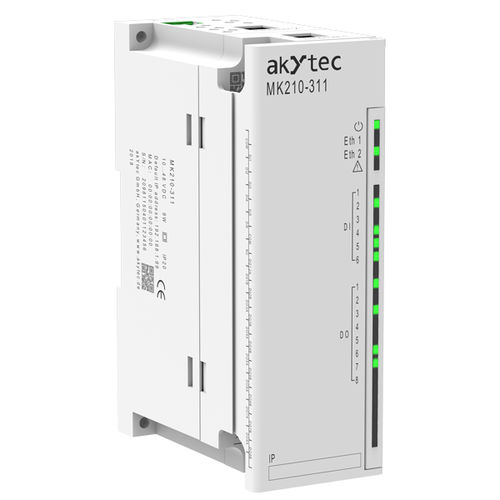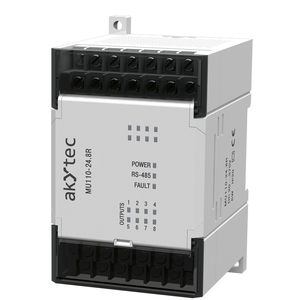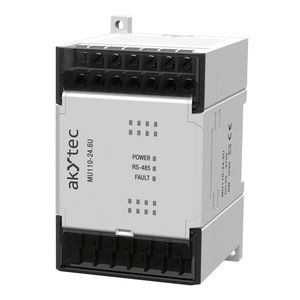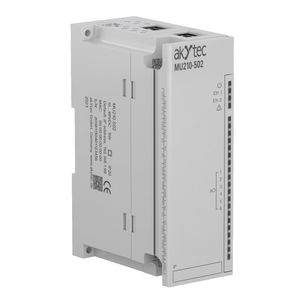
- Company
- Products
- Catalogs
- News & Trends
- Exhibitions
Digital I/O module MK210-311EthernetModbus TCPUSB
Add to favorites
Compare this product
Characteristics
- Signal type
- digital
- Bus
- Ethernet, Modbus TCP, USB
- Number of inputs/outputs
- 4 digital outputs
- Type
- decentralized, network
- Applications
- temperature
- Other characteristics
- relay, flexible
Description
The MK210 DI/O series from akYtec presents a dynamic range of digital I/O modules designed for efficient and reliable performance in decentralized automation systems. These modules are adept at handling a variety of industrial applications, offering a mix of digital inputs and outputs along with advanced communication features, and provide reliable communication using the Modbus TCP protocol through Ethernet interfaces.
Key Features of the MK210 Series:
Flexible Input/Output Configuration: The MK210 modules are available with 6 or 12 digital inputs, configured as switch contacts and NPN, and 8 or 4 digital outputs (relay). This range of inputs and outputs caters to diverse control and monitoring needs.
Efficient Communication Interface: Equipped with an Ethernet port and Modbus TCP support, these modules ensure seamless communication of input and output data to controllers, facilitating easy integration into network systems.
Power-Efficient Design: The digital inputs do not require a separate power supply, enhancing the module's efficiency and reducing overall system power requirements.
Load Break Alarm: This feature provides critical alerts in case of load disconnections, enhancing system safety and reliability.
Advanced Networking Capabilities: With two bypass-capable Ethernet ports and support for daisy-chain wiring, the modules are designed for easy and expandable network configurations. The support for protocols such as Modbus TCP, MQTT, SNMP, and SNTP, enables versatile networking and control options.
Catalogs
PRODUCT OVERVIEW 2024
64 Pages
Product overview 2020
78 Pages
Related Searches
- Display module
- Industrial display module
- AkYtec digital I/O
- I O module
- Analog master module
- Digital I O module
- LED display module
- Digital panel meter
- Digital temperature control
- Temperature controller
- Color display module
- Panel-mount panel meter
- Control display module
- Fieldbus I O module
- Programmable logic controller
- Digital temperature control unit
- Serial I/O
- AkYtec remote I/O
- PID temperature control
- DIN rail I O module
*Prices are pre-tax. They exclude delivery charges and customs duties and do not include additional charges for installation or activation options. Prices are indicative only and may vary by country, with changes to the cost of raw materials and exchange rates.












